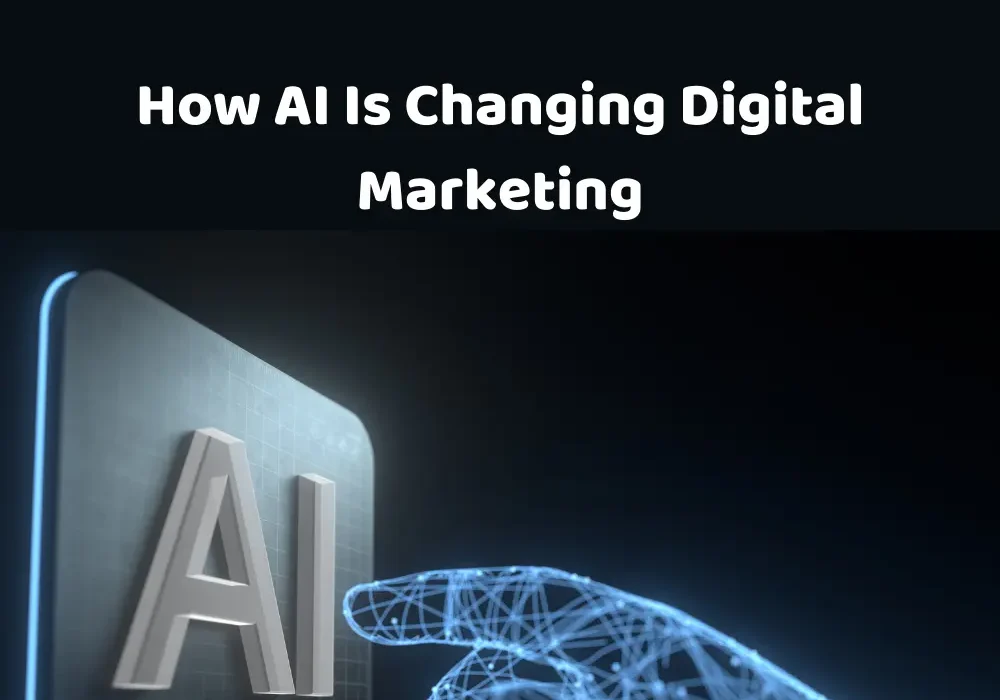AI is revolutionizing digital marketing by enabling more personalized, efficient, and data-driven strategies. Here are some key ways AI is transforming the industry:
1. Personalization at Scale
- Customer Segmentation: AI analyzes vast amounts of data to identify patterns and segment audiences based on behavior, preferences, and demographics, allowing marketers to tailor campaigns to specific groups.
- Dynamic Content: AI-powered tools generate personalized content, such as product recommendations, email subject lines, and ad copy, in real-time to improve engagement.
2. Enhanced Customer Experience
- Chatbots and Virtual Assistants: AI-driven chatbots provide instant, 24/7 customer support, answer queries, and guide users through the buyer’s journey.
- Predictive Analytics: AI predicts customer behavior, such as purchase intent or churn risk, enabling marketers to proactively address needs and improve retention.
3. Improved Ad Targeting and Optimization
- Programmatic Advertising: AI automates ad buying and placement, ensuring ads are shown to the right audience at the right time, maximizing ROI.
- Ad Performance Optimization: AI continuously analyzes ad performance and adjusts targeting, bidding, and creative elements to improve results.
4. Content Creation and Curation
- AI-Generated Content: Tools like GPT-4 and other language models can create blog posts, social media captions, and even video scripts, saving time and resources.
- Content Recommendations: AI curates content for users based on their interests, increasing engagement and time spent on platforms.
5. Data Analysis and Insights
- Real-Time Analytics: AI processes large datasets in real-time, providing actionable insights into campaign performance, customer behavior, and market trends.
- Sentiment Analysis: AI analyzes social media and review data to gauge public sentiment about brands, products, or campaigns.
6. Search Engine Optimization (SEO)
- Keyword Research: AI tools identify high-performing keywords and optimize content for search engines.
- Content Optimization: AI analyzes content for readability, relevance, and SEO best practices, helping marketers rank higher in search results.
7. Email Marketing
- Automated Campaigns: AI automates email workflows, sending personalized messages based on user behavior and preferences.
- Subject Line Optimization: AI tests and predicts the best-performing subject lines to improve open rates.
8. Visual and Voice Search
- Image Recognition: AI enables visual search, allowing users to search for products using images instead of text.
- Voice Search Optimization: As voice assistants like Siri and Alexa grow in popularity, AI helps optimize content for voice search queries.
9. Predictive and Prescriptive Analytics
- Forecasting Trends: AI predicts future trends and customer behavior, helping marketers stay ahead of the curve.
- Decision-Making Support: AI provides recommendations on the best strategies to achieve marketing goals.
10. Fraud Detection and Prevention
- Ad Fraud Prevention: AI detects and prevents fraudulent activities, such as fake clicks or impressions, ensuring ad budgets are spent effectively.
- Brand Safety: AI monitors ad placements to ensure they appear in brand-safe environments.
Challenges and Considerations
While AI offers numerous benefits, it also presents challenges:
- Data Privacy: Marketers must navigate regulations like GDPR and ensure ethical use of customer data.
- Bias in AI Models: AI systems can inherit biases from training data, leading to unfair or inaccurate outcomes.
- Implementation Costs: Adopting AI tools and technologies can be expensive for smaller businesses.
As AI continues to evolve, its role in digital marketing will expand, enabling even more sophisticated strategies. Marketers who embrace AI will gain a competitive edge by delivering more relevant, timely, and engaging experiences to their audiences. However, balancing automation with a human touch will remain critical to building trust and long-term customer relationships.

